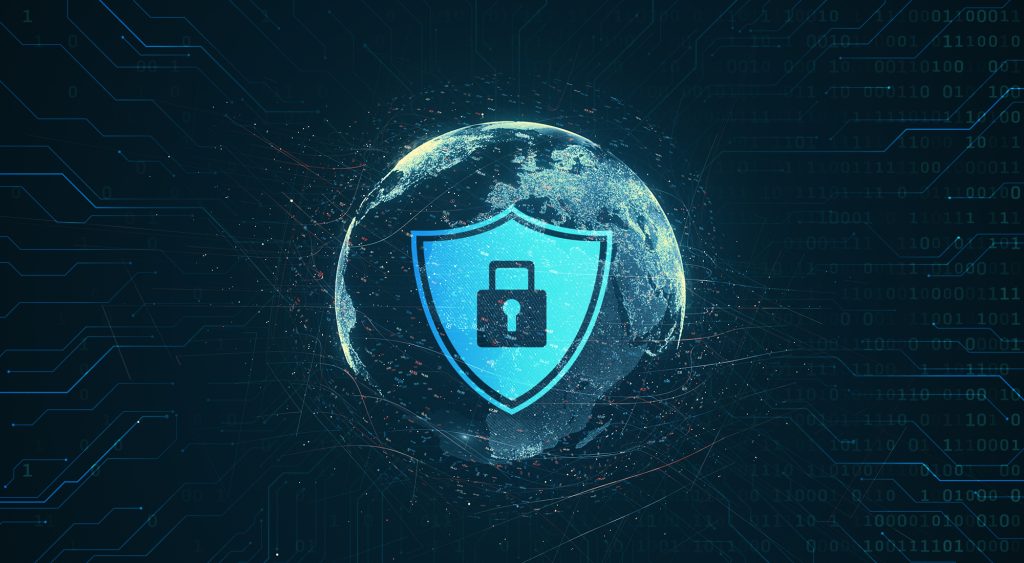
The cybersecurity industry is booming, with roles spanning various specializations, from ethical hacking to threat intelligence and security engineering. With an increasing demand for skilled professionals, now is a prime time to consider a career in cybersecurity. This guide offers an in-depth look at cybersecurity careers, essential job tips, and success strategies for building a sustainable and rewarding path in this ever-evolving field.
Why Choose a Career in Cybersecurity?
Cybersecurity is vital to safeguarding information, systems, and networks from cyber threats. With the growth of digitalization and increased sophistication of cyber threats, the demand for cybersecurity experts has surged. In addition to job stability, cybersecurity professionals enjoy competitive salaries, diverse career paths, and opportunities for innovation.
Key Roles in Cybersecurity
The cybersecurity industry encompasses various job roles that require specific skill sets. Here are a few prominent career paths in cybersecurity:
- Security Analyst
Security analysts monitor and protect organizational data and networks. Their main responsibilities include analyzing security threats, implementing security measures, and responding to incidents. - Ethical Hacker
Ethical hackers, or penetration testers, identify and exploit security weaknesses to help organizations strengthen their defenses. This role requires creativity, technical knowledge, and a deep understanding of hacking techniques. - Security Engineer
Security engineers design and implement security solutions to safeguard networks and systems. They often work on developing firewalls, intrusion detection systems, and other defenses. - Security Consultant
Security consultants advise organizations on best practices for protecting information and mitigating risks. They work with multiple clients and require a broad knowledge of cybersecurity protocols and standards. - Threat Intelligence Analyst
Threat intelligence analysts study cyber threats and provide insights to help organizations proactively protect against potential attacks. They analyze attack patterns, vulnerabilities, and emerging threats. - Incident Responder
Incident responders are on the front line when cyberattacks occur, managing and mitigating breaches. This role requires quick thinking and expertise in managing crises.
Success Strategies for a Cybersecurity Career
Succeeding in cybersecurity requires more than technical knowledge. Here are several strategies that can help you stand out in this competitive field:
1. Build Strong Fundamentals in IT and Networking
A solid foundation in IT and networking is essential for any cybersecurity role. You’ll need to understand operating systems, network protocols, and information security fundamentals to identify and respond to threats effectively.
2. Gain Hands-On Experience
Practical experience is invaluable in cybersecurity. Internships, freelance projects, or lab work can provide hands-on experience with security tools and real-world scenarios, helping you gain the skills needed to succeed on the job.
3. Pursue Relevant Certifications
Certifications like CompTIA Security+, Certified Information Systems Security Professional (CISSP), Certified Ethical Hacker (CEH), and Certified Information Security Manager (CISM) are highly regarded by employers. They demonstrate a baseline of knowledge and commitment to cybersecurity.
4. Develop Critical Soft Skills
Cybersecurity careers require more than technical know-how. Problem-solving skills, attention to detail, and effective communication are vital for success. Cybersecurity professionals often work in teams or communicate with non-technical stakeholders, so being able to convey complex information clearly is a major asset.
5. Stay Updated on Emerging Threats and Technologies
Cybersecurity is an evolving field, and staying informed about the latest developments is crucial. Follow industry blogs, attend webinars, and engage with online communities to stay ahead of emerging threats, technologies, and best practices.
6. Network with Industry Professionals
Networking can open doors to job opportunities and mentorship. Join cybersecurity associations, participate in forums, and attend conferences to connect with professionals who can offer insights and guidance for advancing in the field.
Tips for Job Hunting in Cybersecurity
Breaking into the cybersecurity industry can be challenging, but the following job tips can make it easier to land your first role:
- Build a Strong Online Presence: Create a LinkedIn profile, and showcase your skills on GitHub or by writing blog posts on security topics. A visible online presence can set you apart from other applicants.
- Highlight Transferable Skills: If you’re transitioning from a related field, emphasize transferable skills like problem-solving, analytical skills, and experience with IT tools.
- Customize Your Resume: Tailor your resume for each job application, focusing on relevant experience and certifications. Highlight specific achievements that demonstrate your expertise.
- Prepare for Technical Interviews: Many cybersecurity roles include technical interviews. Practice solving real-world problems, and familiarize yourself with common interview questions specific to the role you’re applying for.
Long-Term Growth and Specialization in Cybersecurity

As your career in cybersecurity progresses, you may want to consider specializing in a particular area to enhance your expertise and marketability. Here are a few paths to consider for long-term career growth:
- Cloud Security
With the rise of cloud-based infrastructure, securing cloud environments has become critical. Cloud security specialists focus on securing data, applications, and infrastructure in cloud platforms like AWS, Azure, and Google Cloud. Certifications such as AWS Certified Security – Specialty or Google Professional Cloud Security Engineer are advantageous. - Cybersecurity Management and Leadership
For those interested in taking on a managerial role, cybersecurity leadership positions like Chief Information Security Officer (CISO) allow you to oversee security strategy at a high level. Pursuing certifications like the Certified Information Security Manager (CISM) or Certified Information Systems Auditor (CISA) can prepare you for leadership roles. - Forensics and Incident Response
Cybersecurity forensic analysts investigate cyber incidents to identify the root cause of breaches. Incident response specialists focus on handling breaches effectively and quickly. Forensics certifications like GIAC Certified Forensic Examiner (GCFE) can boost your credibility in this niche. - Artificial Intelligence and Machine Learning in Cybersecurity
The integration of AI and machine learning in cybersecurity is transforming threat detection and response. Specializing in this area enables you to work on advanced tools and predictive analytics that proactively identify and respond to threats. Machine learning knowledge and data analysis skills are highly beneficial in this domain. - Penetration Testing and Red Teaming
For those who enjoy hands-on testing of security systems, penetration testing and red teaming offer exciting opportunities to simulate attacks on organizations’ defenses. Advanced certifications, such as Offensive Security Certified Professional (OSCP) or Certified Red Team Professional (CRTP), are often required for roles in this area.
Top Technical Skills to Develop for Cybersecurity Success
- Programming and Scripting
Proficiency in languages like Python, JavaScript, or PowerShell allows cybersecurity professionals to automate tasks, create security scripts, and better understand how applications may be exploited by attackers. - Network Security and Protocols
Knowledge of network protocols such as TCP/IP, HTTP, and DNS is foundational for analyzing network traffic and identifying potential security breaches. - SIEM Tools
Security Information and Event Management (SIEM) tools like Splunk, IBM QRadar, and ArcSight are essential for monitoring and analyzing security events in real-time. SIEM proficiency is highly valued by employers looking to enhance their incident detection capabilities. - Encryption and Cryptography
A solid understanding of encryption protocols and cryptographic techniques is critical for securing data. Knowledge of SSL/TLS, public-key cryptography, and hashing algorithms can set you apart in roles that involve secure communications and data protection. - Risk Assessment and Management
Cybersecurity professionals are often involved in identifying and managing risk. Developing skills in risk analysis and mitigation is essential, particularly for roles in cybersecurity management and consulting.
Future-Proofing Your Cybersecurity Career
The cybersecurity field is rapidly evolving, and future-proofing your career is essential for sustained growth. Here are some strategies to keep you ahead in this dynamic industry:
- Commit to Lifelong Learning
Cybersecurity is a field that requires continuous education. Regularly updating your skills through online courses, workshops, and webinars will help you stay informed about the latest technologies and threats. - Gain Cross-Functional Experience
Exposure to related fields like IT, data science, and project management can enhance your understanding of cybersecurity’s role in business. Many cybersecurity roles now require a multidisciplinary approach, and gaining experience in complementary areas can be a huge asset. - Engage in Ethical Hacking Communities
Joining communities such as Bugcrowd, HackerOne, or Offensive Security allows you to hone your skills and stay current with new attack vectors. Participation in these communities can also lead to recognition and potential career opportunities. - Mentor Others and Share Knowledge
Contributing to the cybersecurity community by mentoring newcomers, writing blog posts, or sharing resources can solidify your knowledge and boost your reputation in the field. Many employers value candidates who actively contribute to the industry and help elevate the skill level of others. - Stay Adaptable and Agile
As new technologies emerge and cybersecurity threats evolve, flexibility and adaptability are crucial. Embrace change, continuously assess new tools and methodologies, and be ready to pivot your approach when necessary.
Conclusion: Embracing a Rewarding and Resilient Cyber Security Career
Cybersecurity is more than a career—it’s a mission to protect, innovate, and adapt in a constantly changing digital landscape. With opportunities to specialize, contribute to technological advancements, and even move into leadership, a cybersecurity career offers endless potential for growth. By focusing on building both technical and soft skills, staying informed on emerging threats, and actively engaging with the cybersecurity community, you can thrive in this essential field and make a significant impact.
Prepare to navigate and protect the digital world by equipping yourself with the right skills, certifications, and a commitment to lifelong learning. In a world increasingly dependent on secure systems, your expertise will be indispensable.







